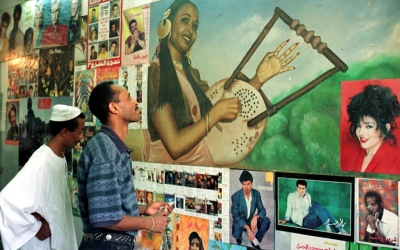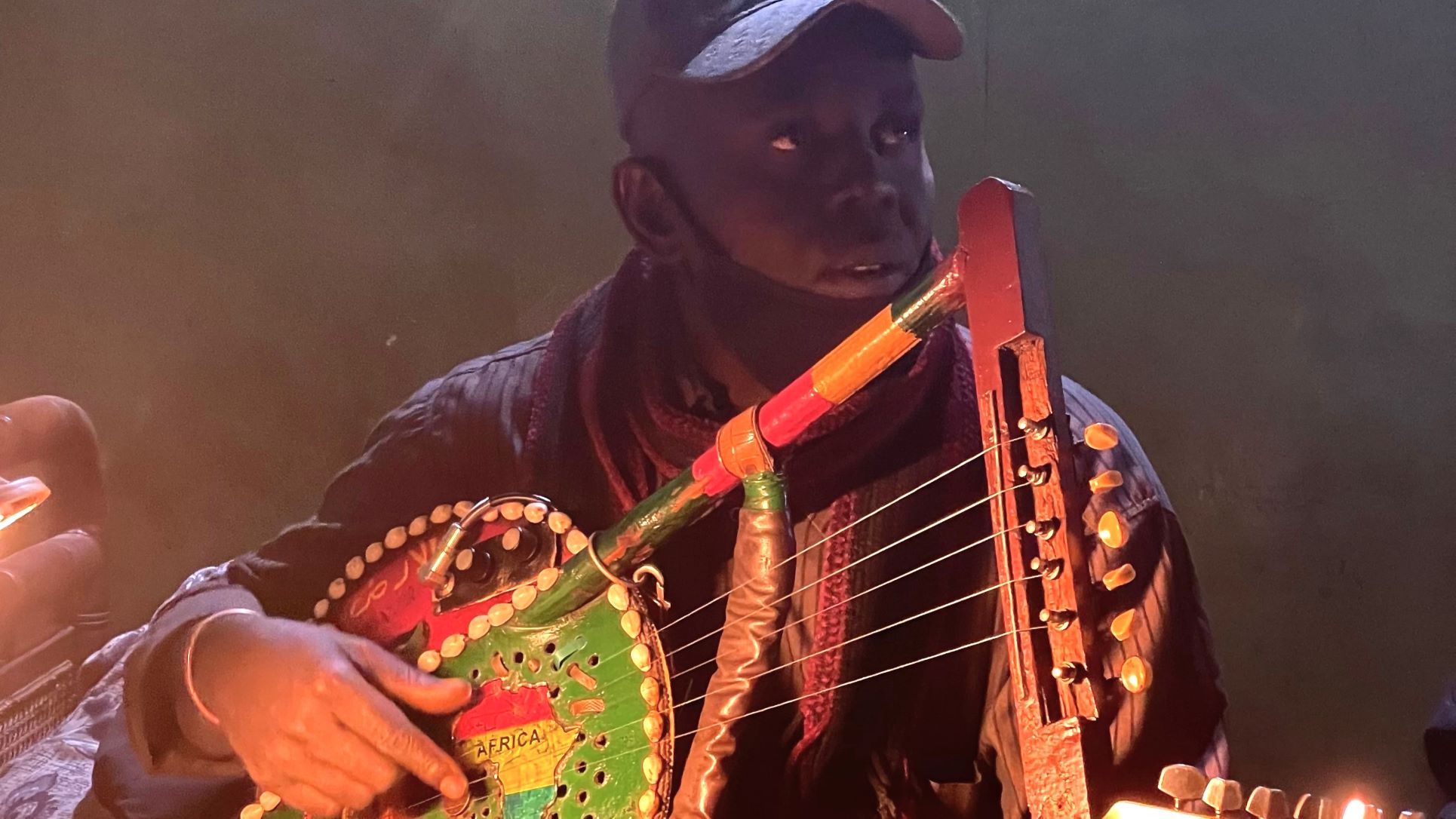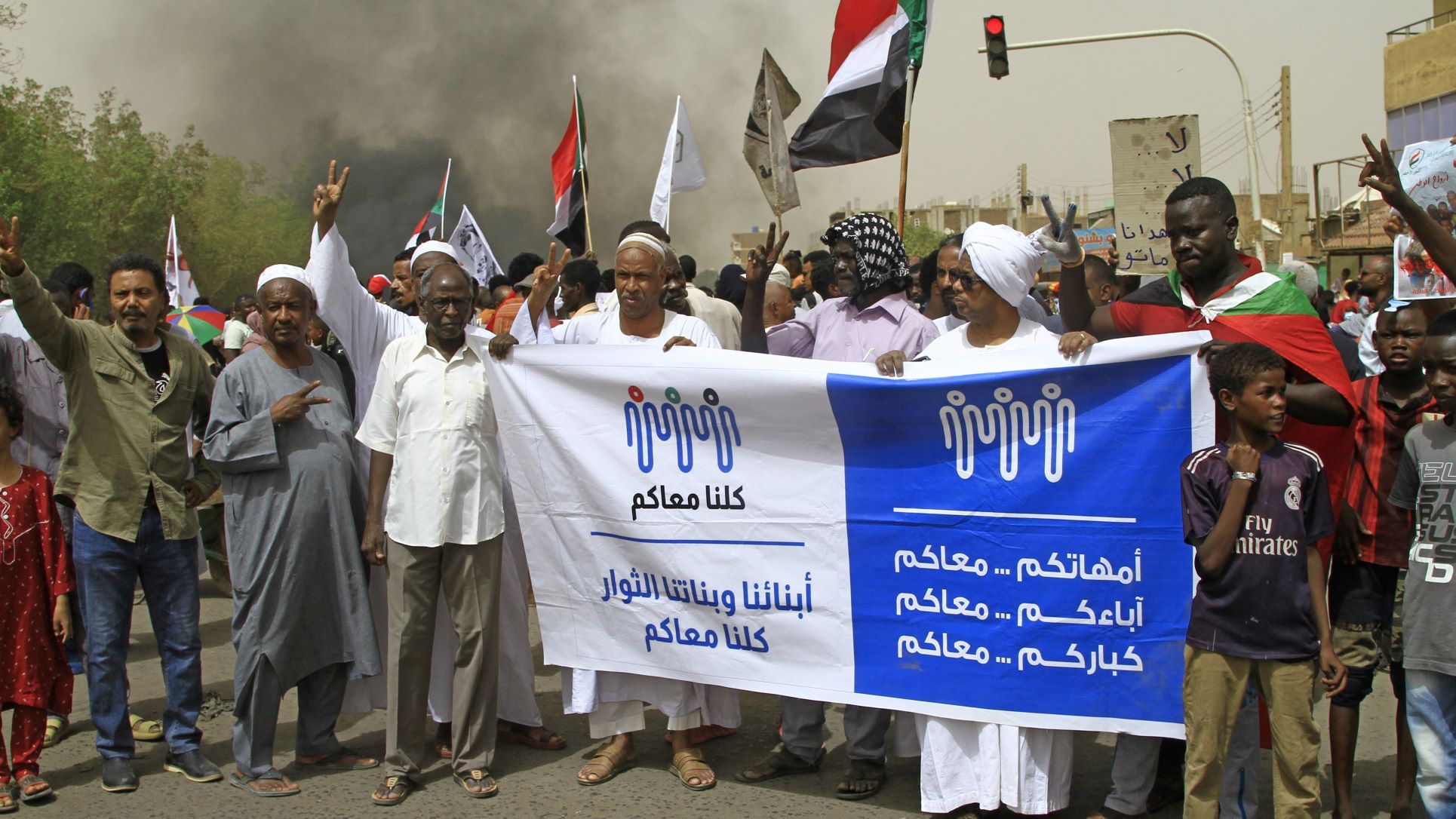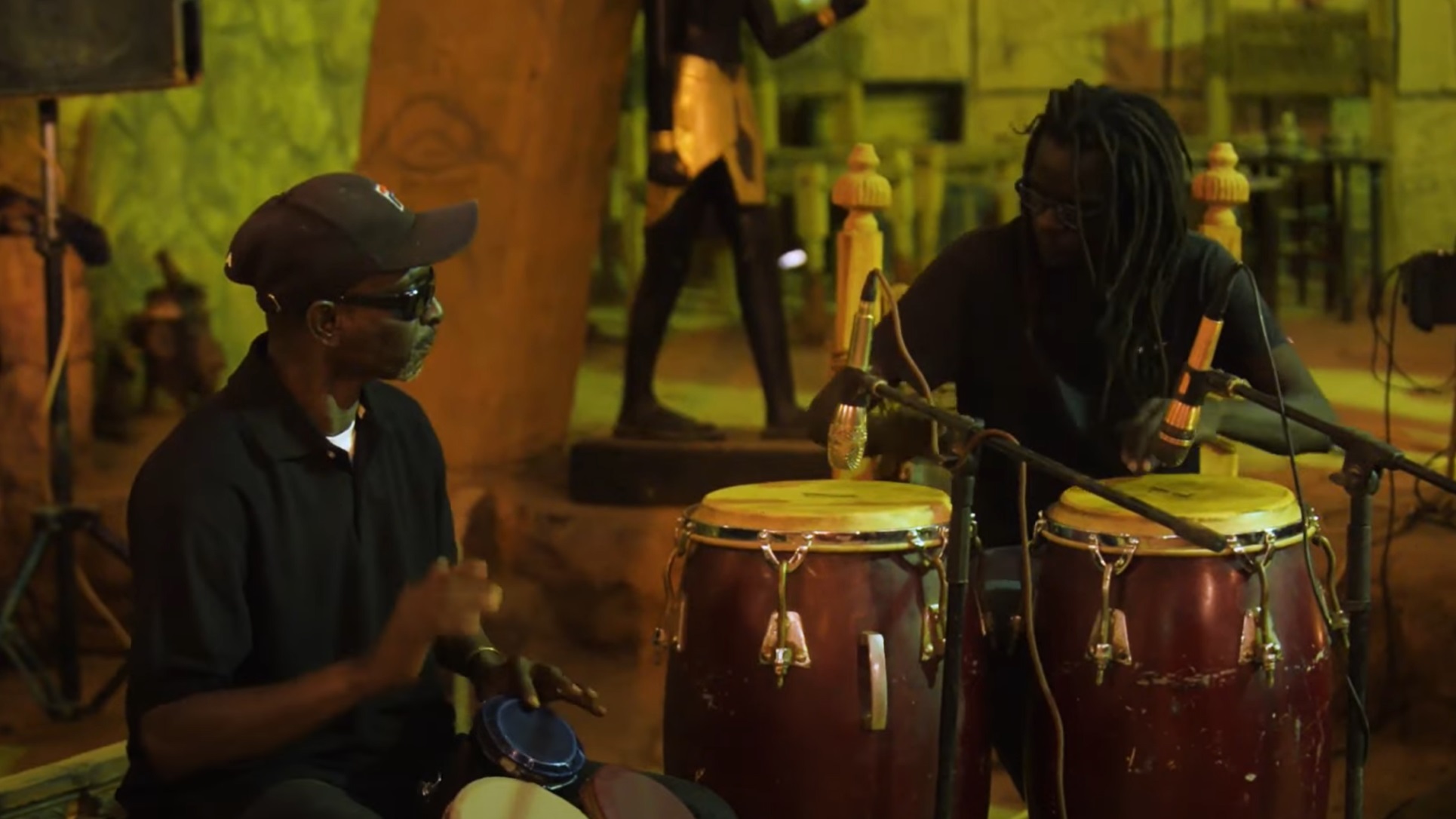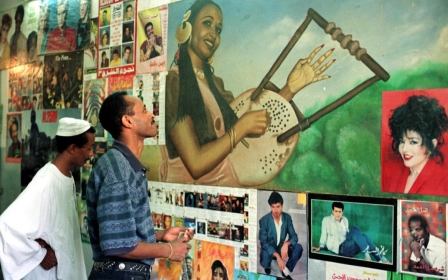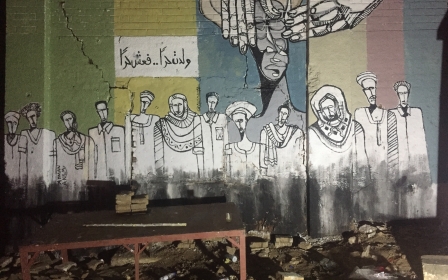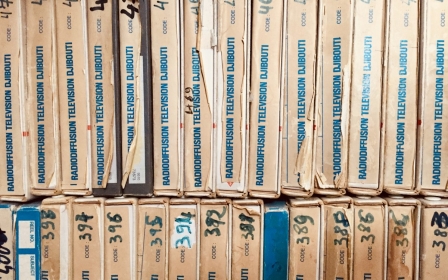Soundtrack of a revolution: The rise of Sudan's Beja music
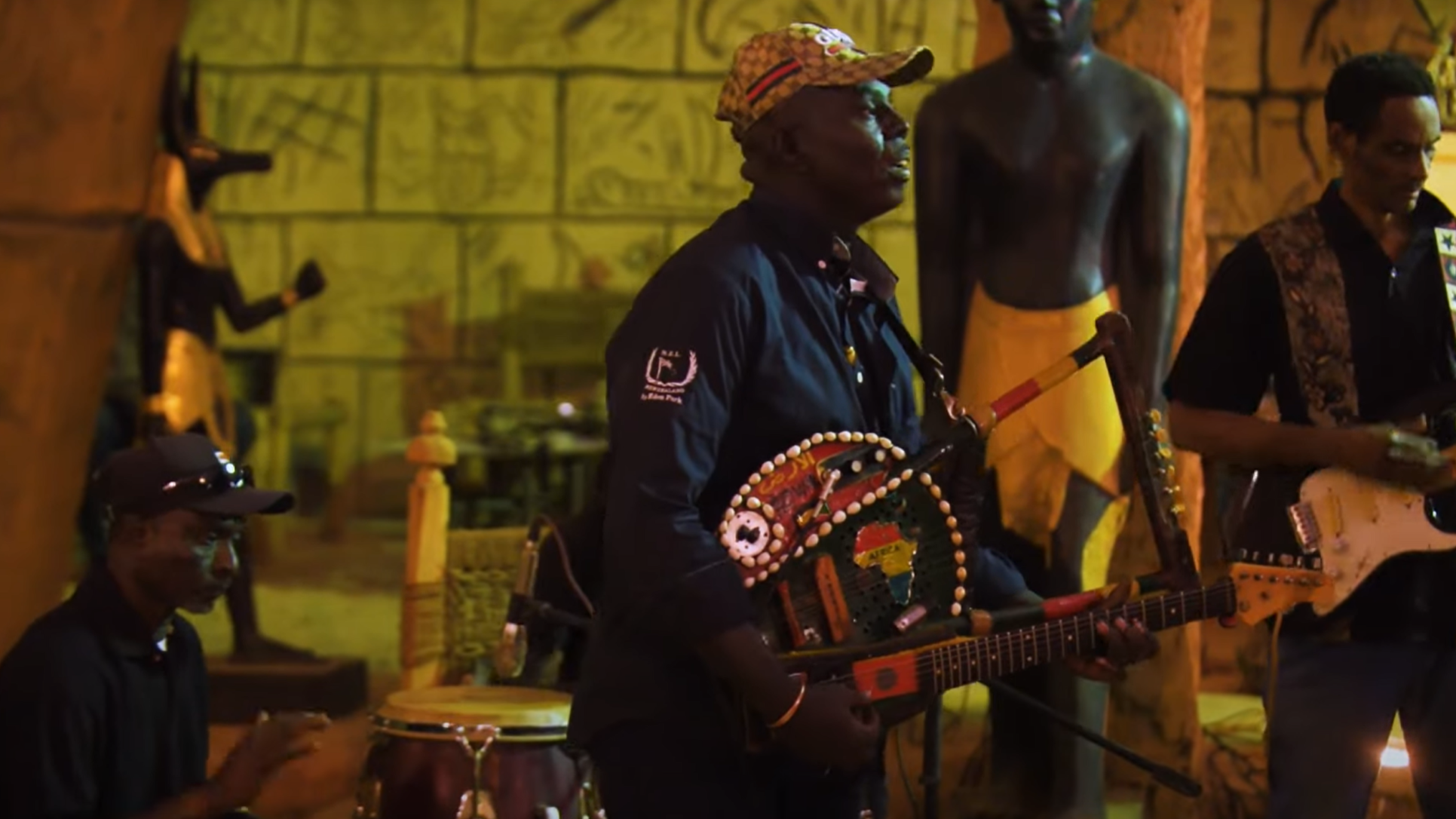
The outbreak of a revolution is one of the most transformative and socially vibrant processes that can occur in human societies. So when the members of Ostinato Records, an independent record label in New York, heard that a revolution had broken out in Sudan in late 2018, they travelled to the country as soon as they could to capture it.
'We can now not only showcase our music to the world, but we can also use it to shed light on our ongoing struggle'
- Noureddine Jaber, musician
Through friends and colleagues in the country, they learned that the revolution, which forced the fall of former leader Omar Hassan al-Bashir after three decades in power within just five months, had opened the door to a fascinating musical revitalisation.
Sudan’s dynamic music scene was a victim of the suffocating and socially conservative Bashir era. With the norms of the previous decades being challenged, Ostinato members did not want to miss the opportunity to record it.
“When the revolution started, I was told music was playing a very central role,” Vik Sohonie, founder of Ostinato Records, told Middle East Eye. “People were chanting all kinds of new music, and music that people were not expressing before.”
The outbreak of the Covid-19 pandemic, however, cut short their initial plans to travel to Sudan. But when they heard the news last October of the military coup that put an end to the fragile transition in the country, and the new tension that had opened up between the generals and the pro-democracy opposition, they decided to head quickly to Khartoum.
New MEE newsletter: Jerusalem Dispatch
Sign up to get the latest insights and analysis on Israel-Palestine, alongside Turkey Unpacked and other MEE newsletters
The members of Ostinato Records knew well where they were going. In 2018, the label had released an album called Two Niles to Sing a Melody, which traced the golden age of Sudanese music. The work included the likes of legendary late Nubian musician Mohammed Wardi, one of the region's most notable influential performers and activists of the 20th century.
This time, the surprise for Sohonie came from a very different channel: TikTok. Scrolling through the social video app shortly after landing in Sudan, he found a clip recorded by a mysterious band from Port Sudan, a city on the Red Sea coast, that left him fascinated.
“The beautiful thing about TikTok is that the algorithm is very localised,” Sohonie said. “So, while we were scrolling, we saw a very badly shot video of this band playing, and I just thought ‘these guys are incredible’."
He then decided to dive into it by tracking down the band alongside other artists from the region and putting together an album comprised of their work.
The result has been the production of the first ever known international release of Beja music, a genre native to Sudan's eastern desert region, which is home to the Beja people.
Released in June 2022, the album, Beja Power!, features the local outfit that Sohonie found on TikTok. “We recorded it during the coup and the protests,” the producer said.
Beja culture
The leader of the band that circulated in the Sudanese TikTok universe was Noureddine Jaber, also known as Noori.
One day in the late 1990s, this Sudanese musician ventured near the scrapyards of his hometown of Port Sudan and by surprise found the well-preserved neck of a guitar, which Sohonie noted was a rare instrument in this area.
Soon after, his father Attalmula Jaber Shakak, a renowned local instrumentalist, gave Noori a vintage tambour from the 1970s, a traditional four-stringed instrument strummed across the region.
Thanks to his manual skills, the young man forged the two pieces into a unique electrified tambour-guitar - probably the only one in existence.
Noori was only 18 at the time. But with that unique instrument in hand, and driven by a passionate cause, he set out on a mission to keep the little-known Beja music scene alive.
“The desire to preserve Beja music came even before the instrument,” Noori told MEE.
The Beja are an ancient multi-tribal people who trace their origins back to Ancient Egypt and the Nubian kingdom of Kush. Their roots are in a vast semi-desert territory that lies between the Nile Valley and the Red Sea coast, covering eastern Sudan.
One of the main features the Beja have in common is the Bedawiye language, which is classified by most linguists as a Cushitic language, a branch of the Afroasiatic language family. However, many also speak Tigre and Arabic depending on the area they live in.
Like the rest of Sudan’s indigenous and peripheral peoples, the Beja have traditionally been a group persecuted and marginalised by central governments in Khartoum, resulting in profound political, social and economic inequalities compared to the country’s centre.
Bashir’s regime in particular, motivated by a mixture of Arab ethnocentrism, Islamism and opportunism, launched a fierce campaign against the Beja people that, among other things, tried to erase their language and culture off the map.
“Bashir wanted to obliterate the Beja culture and replace it. He said we were lazy, backwards people with lice and of no use to the state,” Noori said. “This then became a policy of neglect,” he added.
Even after the fall of the former dictator in mid-2019, little changed in the area.
The most obvious evidence of neglect in eastern Sudan is that the area remains one of the poorest in the country despite being home to its main port, Port Sudan, and having fertile land rich in mineral resources, such as gold.
Another more subtle yet catastrophic consequence, the members of Ostinato Records noted, is the precarious state of the rich and diverse Beja culture and music. Few old Beja recordings were produced in this context. And even fewer, if any, remain.
“To obliterate Beja, you have to destroy the language, the culture, and the music. Or at least ensure it does not reach anywhere,” Noori said.
And it was precisely with the aim of trying to reverse this delicate trend that Noori decided to form Noori & His Dorpa Band in 2006 with five other members from different parts of Sudan.
“Beja music has power because it is made in our mountainous region. Dorpa means mountain. And the echoes of the mountain amplify the music and give it strength,” Noori noted.
“Beja people are known for their manufacturing of weapons, knives, swords. Many people carry these with them every day. It is a symbol of strength,” he added.
“For me, I made the tambo-guitar, also as a symbol of strength and the ability to preserve our culture,” he added.
The world in one melody
Now the album produced by Ostinato Records featuring Noor & His Dorpa Band is intended to become the latest contribution from the Red Sea region to the world's musical corpus.
“For the first Beja album to travel not just the world but also Sudan is a milestone in Beja history,” Noori said.
“We can now not only showcase our music to the world, but we can also use it to shed light on our ongoing struggle,” he added.
Beja Power! features six tracks that take the listener to another time and space, filled with long rarely heard melodies.
In its own way, the album aims to become a living archive of the best and most heartfelt Beja songs, each having been composed at a different time in their millennial history.
“This music is very deep. It’s the feeling of a traveller,” Omer Alghali, co-producer of the album and founder of the Khartoum-based O’Gali Creative Events, told MEE.
“The music has been perfected over many generations to become a very refined sound,” Noori explained.
Combining styles such as electric soul, blues, jazz and rock, even hints of country, the results are styles and chords that could well be Tuareg, Ethiopian, Peruvian or Thai, members of Ostinato Records explained.
“It’s unique because of the rhythm, melody and the composition of the music,” Alghali noted. “It’s a fusion of many different parts of the world in one melody,” he added.
Music and activism
For Sohonie, the new album is also a soundtrack to the revolution in Sudan. Firstly, because the Beja people have actively participated in the country’s protests as they have continued to fight against the discriminatory policies of the central government.
And secondly, without the revolution, the space for music from the periphery would unlikely have opened
“I think that if the events of the last two to three years didn’t happen, I don’t know if this music would have come out,” Sohonie said.
Noori agrees. “We started the band in 2006, but after 2019 we felt more empowered to present our music,” he said.
“We began playing a lot more in Khartoum, and people recorded us playing and put it on social media, and opportunities came,” Noori added.
Alghali also believed that the album will also raise awareness about the Beja, and for people to go beyond music and explore their history and struggle.
And although he acknowledged there is still little awareness among the public and a lack of government support for this music, he considered the opportunity given to Noori & His Dorpa Band as something that is unique.
“Noori has been trying to promote his music for many years. But he didn’t have a good opportunity to take it to the world,” Alghali said.
“Now he has a good chance,” he concluded. “It’s a golden opportunity.”
Middle East Eye delivers independent and unrivalled coverage and analysis of the Middle East, North Africa and beyond. To learn more about republishing this content and the associated fees, please fill out this form. More about MEE can be found here.


